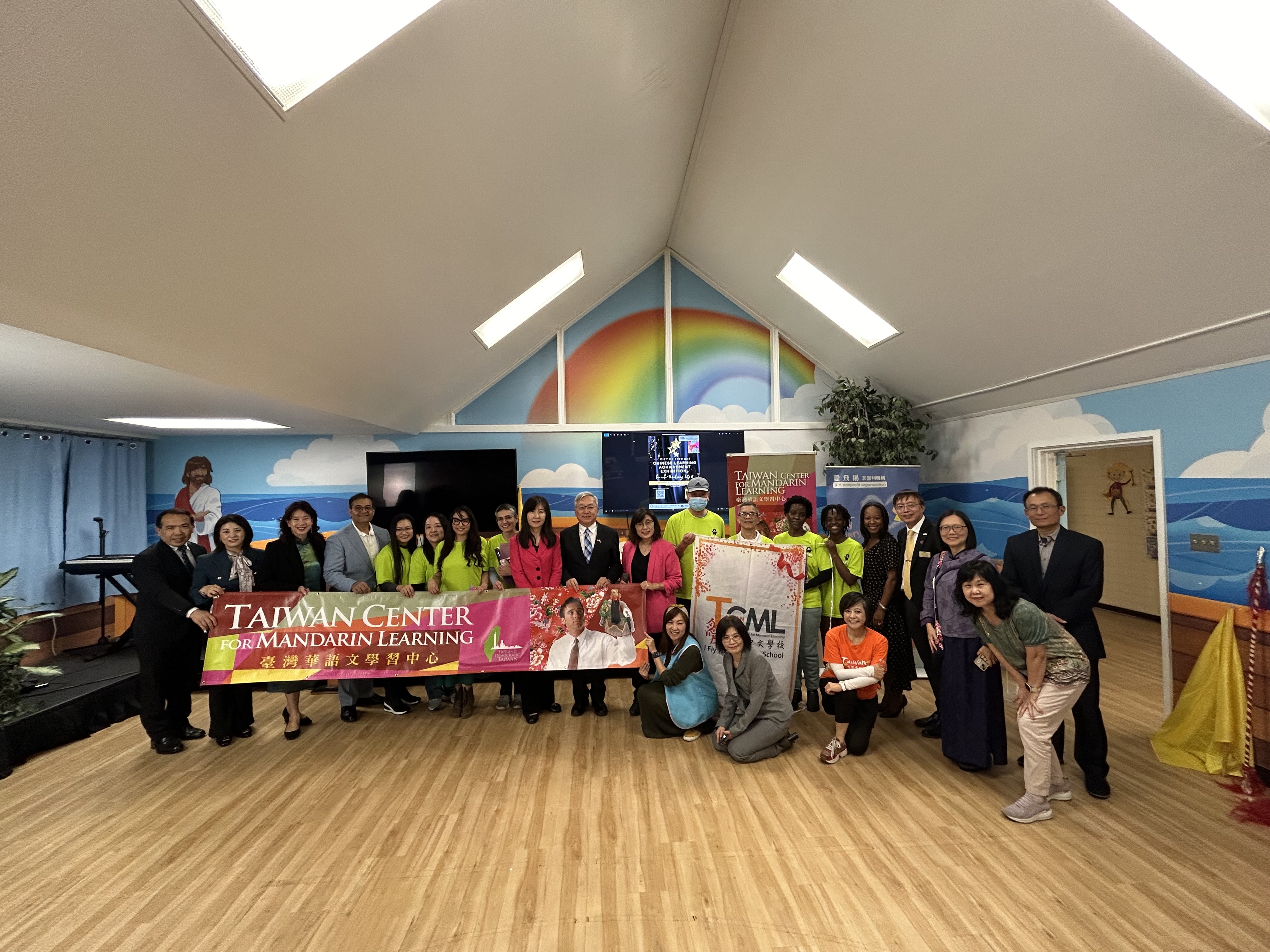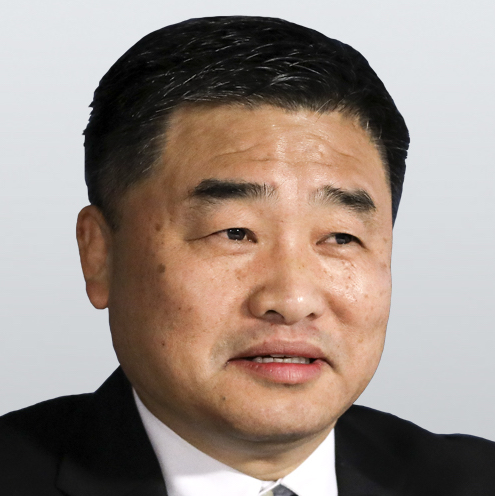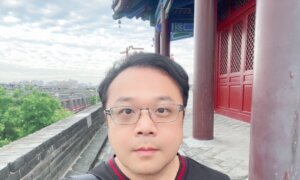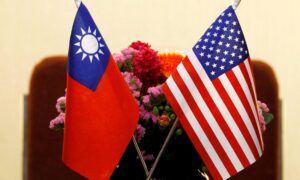News Analysis
Enrolling as a student at a Taiwan Center for Mandarin Learning (TCML) has become a popular option for American adults interested in developing Mandarin Chinese language skills. California has positioned itself at the forefront of this trend.
On Dec. 3, 2020, the American Institute in Taiwan (AIT) and the Taipei Economic and Cultural Office (TECO) signed and launched the U.S.-Taiwan Education Initiative. The initiative aims to help more Americans learn Mandarin while enabling more Taiwanese to learn English, assisting Taiwan in achieving its 2030 bilingual education goal.
AIT and TECO are the de facto embassies of the U.S. and Taiwan governments, keeping their unofficial diplomatic relations.
With support from both governments, so far 66 TCMLs are established in 19 U.S. states, with California hosting 20 centers—more than any other state.
Mandarin Chinese is one of 13 languages listed by the U.S. Federal Bureau of Educational and Cultural Affairs as critical to national security and prosperity.
Before 2021, Mandarin education in the United States was primarily provided by Confucius Institutes, which were funded and supported by the Chinese communist regime. However, due to controversies over the operations of the Institutes, in recent years Taiwan-supported TCMLs have gained popularity and become a major provider of Mandarin education for American adults in the United States.
Tailored Programs for Diverse Learners
TCML programs are offered to U.S. communities through partnerships with local Chinese language schools in different countries.The Epoch Times recently interviewed several students who had participated in the TCML program at I Fly Young Mandarin School, one of the local Mandarin language schools in Fremont, California.
Sam Carlos, a software engineer at Google, previously studied in Taiwan for a year through a U.S.-Taiwan student exchange scholarship. Fond of Taiwan’s night markets and stinky tofu—a well-known Taiwanese dim sum—he said he cherishes memories of Taiwanese hospitality. After returning to the United States, he joined Google’s TCML Mandarin program to continue improving his skills.
Carlos said that the program includes workplace-specific training, offering scenarios like job interviews, company meetings, and interactions with colleagues in Mandarin. He also told The Epoch Times that he planned to visit Taiwan again during this year’s holiday season.
Hadassah Byamukama, an 18-year-old high school senior, joined TCML after being inspired by her Mandarin-speaking friends. Determined to understand and participate in their conversations, she began studying Mandarin while preparing for college applications. Her favorite activity is learning Mandarin songs, such as “Best Friend,” a popular Taiwanese song that won her first place in a global TCML singing competition.
Byamukama told The Epoch Times that her mother, who also developed an interest in learning Mandarin, has been joining her in the same training courses and is enjoying her learning experience with the TCML program.
Musicians Krysta and Daniel Henrietta, a couple from Missouri, moved to California to support a local church community. Learning Mandarin became essential for communicating with their Taiwanese and Chinese congregants. After completing TCML courses in Fremont, they moved to Taiwan to further their Mandarin studies.
Krysta praised the TCML cultural activities, which include traditional games, food tasting, and field trips. The couple visited iconic sites such as the National Palace Museum and night markets, embracing Taiwan’s culture. They’ve since invited their parents to Taiwan and acted as their parents’ tour guides.
Krysta, who is now pregnant, also commended Taiwan’s health care quality, and she told The Epoch Times that she plans to serve as a church volunteer in Taiwan with her husband in the future.
Participation of Local Schools and Government
With the participation of Mandarin-language schools around the world, TCML training programs not only offer a Taiwanese culture experience but also reflect the local characteristics of different regions and communities that host them.The program offered through I Fly Young Mandarin School is one example of how TCML addresses local needs.
Established in 2013, I Fly Young provides Mandarin education for both adults and K–12 students, as well as various vocational training programs tailored for adults in the workplace.
In an interview with The Epoch Times, the school’s principal, Shan Shengling, shared that she previously served as vice president of the Northern California Chinese Language Association. It was through this association that she learned about TCML.
Since 2023, her school has been participating in the TCML program and offering Mandarin training classes in the San Francisco Bay Area.
Shan said she has been living in the United States for nearly 30 years. Before engaging with TCML, she primarily focused on teaching Mandarin to children aged 5 to 18, catering to the needs of overseas Chinese communities.
“But I wanted to contribute more to the community where I live,” she said.
TCML’s mission to provide Mandarin education for American adults has given educators like Shan more opportunities with a broader scope. Offering classes to adults like the Henrietta couple and Byamukama’s mother has expanded the reach of I Fly Young’s educational services within the local community.
Shan said the TCML curriculum is designed specifically for adults, emphasizing listening, speaking, and practical application, which aligns well with adult learners’ needs. Moreover, TCML offers training programs for teachers using its materials. Educators can receive training directly from TCML, saving overseas Mandarin schools significant time, effort, and resources.
Shan also highlighted the flexibility of TCML courses, which cater specifically to adult learners. All course materials and resources are available online, allowing students to go beyond the content taught in their classes. Those who want to spend more time studying can access additional content independently online. This flexible teaching approach accommodates the diverse needs of adult learners.
Recently, the city of Fremont started a partnership with TECO and offered Mandarin training classes to city employees through I Fly Young. The Epoch Times learned from Shao Yang, a Fremont city councilmember, that the program has received positive feedback and the nearby city of San Jose is considering a similar initiative.

Sophia Chuang, director of TECO Culture Center in Milpitas, Calif., speaks to the Epoch Times about TCML on Oct. 18, 2024. (Nathan Su/The Epoch Times)
From Confucius Institutes to TCML Programs
According to Sophia Chuang, director of the TECO Culture Center in Milpitas, California, the adoption of Taiwan’s Mandarin education programs by the United States and other Western countries reflects concerns over the lack of academic freedom in China-supported Confucius Institutes. Sensitive topics like Taiwan, the Tiananmen Square Massacre, and Tibet were prohibited by the Institutes, and the Institutes allegedly served as tools for intelligence gathering.On Nov. 17, 2004, the University of Maryland established the country’s first Confucius Institute, which closed in early 2020. Before 2020, Confucius Institutes, as overseas Chinese language learning institutions supported by Beijing, had established more than 100 branches across various U.S. states.
In December 2006, Li Changchun, then a member of the Chinese Communist Party’s (CCP) Politburo Standing Committee, stated at the CCP’s National Propaganda Ministers’ Conference that running Confucius Institutes was one of the important aspects of the six major tasks to promote the “socialist core value system.”
Confucius Institutes became a significant part of China’s global public relations campaigns. According to a report by the Australian Strategic Policy Institute, Beijing spends over $10 billion annually on its global propaganda efforts.
Over the years, Western media have continuously reported controversies surrounding Confucius Institutes, accusing them of being gateways for the Chinese government to collect data on U.S. universities, colleges, faculty, and students.
In December 2014, in an interview with BBC, Xu Lin, then director general of the Confucius Institute headquarters, stated that people who practice Falun Gong could not work at overseas Confucius Institutes because all teachers sent abroad were Chinese citizens and had to comply with CCP regulations.
First introduced in China in 1992, Falun Gong, or Falun Dafa, is a spiritual practice based on the principles of truthfulness, compassion, and forbearance. The practice has been persecuted by the CCP since July 1999 mainly because of its popularity.
After 2018, many Confucius Institutes in Western countries began to close. Sec. 1091 of the 2019 U.S. National Defense Authorization Act restricted federal funding for foreign language programs at U.S. universities hosting Confucius Institutes. In August 2020, the U.S. State Department designated Confucius Institutes as foreign agents operating in the United States.
By the end of 2023, fewer than five Confucius Institutes remained operational in the United States.
Since the signing of the U.S.-Taiwan Education Initiative in 2020, the two sides have held four high-level dialogues. Participating government agencies include AIT, the U.S. Department of State, the U.S. Department of Homeland Security, Taiwan’s Ministry of Foreign Affairs, and Taiwan’s Ministry of Education.
In follow-up efforts, AIT, Taiwan’s Ministry of Foreign Affairs, and National Chung Cheng University have organized multiple seminars involving English-speaking countries like the United Kingdom, Canada, Australia, and New Zealand to promote the initiative’s principles and objectives.














